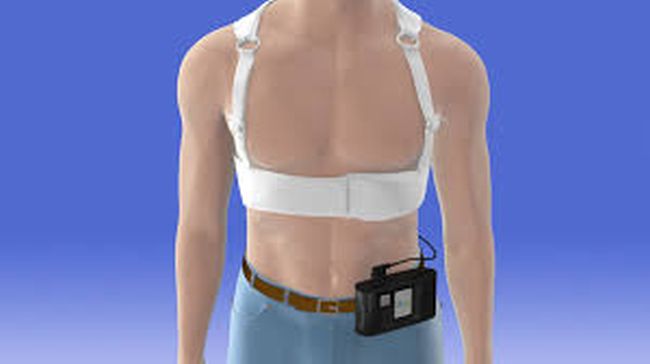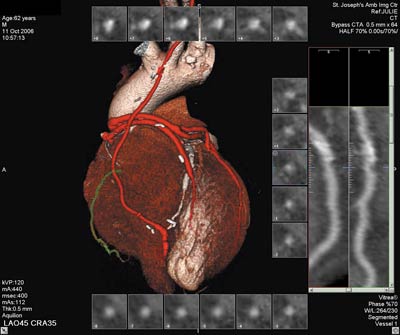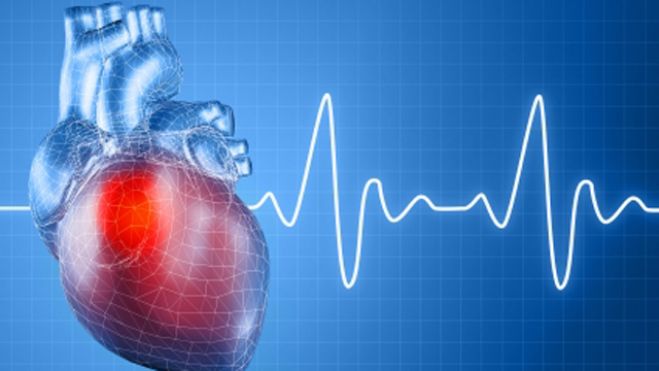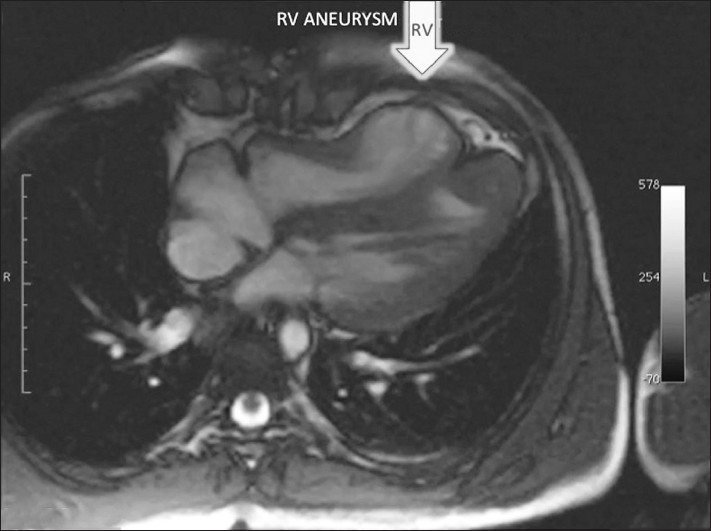If your guy’s a health nut, extreme athlete, or just needs a little motivation to get off the couch, show him some love this Father’s Day with a thoughtful gift. READ MORE
Author Archives: Dr. Tozzi
Father’s Day Health Watch: For Father’s Day, Share These Healthy Tips With Dad
Want to give your Dad something special for Father’s Day? Stealthily share some of these tips for healthy summer living with him. READ MORE
Father’s Day Health Watch: Bad News for BBQ: Hot Dogs May Raise Heart Disease Risk
Just in time for those Father’s Day cookouts, researchers have released a study linking serious disease risk with processed meats. Remember, the way to Dad’s heart is through his stomach – try the tomato salad instead of the baloney-salami sub. READ MORE
Today’s Health Watch: LifeVest Wearable Defibrillator
A 76-year-old North Carolina man says he’s thankful to be alive after he nearly died on his kitchen floor this past April, thanks to a wearable defibrillator. I have actually had the opportunity to deploy these vests with young patients as well, with equally positive results. READ MORE
Today’s Health Watch: Heart Disease
Daily intake of lycopene supplements – a compound found in tomatoes and other foods – improves blood vessel function in patients with cardiovascular disease, according to a new study by the University of Cambridge. READ MORE !
!
Tranquility49, “Dr. Robert J. Tozzi: Hidden Heart Ailments in Children and Adults,” International Business Times, 12 May 2014
Stories From Main Street: Using A Family Tragedy To Help Diagnose Congenital Heart Defects, WCBS NewsRadio 880, 21 April 2014
Racing Death: How Can Runners Be Saved from Cardiac Arrest? FoxNews.com Health, 18 April 2014
Screenings Held in Waldwick Boy’s Memory Detect Heart Issues in 14 Bergen County Youths, Northjersey.com, 24 March 2014
Sudden Death Prevention Education
The following are the facts concerning screening for children
to prevent sudden cardiac death
FACTS:
- 1) Screening reduces the risk of sudden death in sports and in daily activities overall.
- 2) No screening system eliminates the risk of sudden death.
- 3) Common sense plays a role in prevention – avoid dehydration – avoid aggressive exercise in extremes of heat, especially when one has not acclimated to the higher temperature. (It can take up to five weeks of exposure to warmer weather.)
- 4) The reduction of sudden death in sports and sudden death in general for children involves education for pediatricians, families, schools and government in a variety of areas.
- 5) Our screening program will identify diseases that are known to cause sudden death in children.
The purpose of this screening is to identify as many high-risk abnormalities as possible. This does not exclude the possibility of congenital heart disease, mild Hypertrophic Cardiomyopathy or even the future development of Hypertrophic Cardiomyopathy. When applied to large groups, it will reduce the risk, but not eliminate the risk of sudden death. Healthy diet, lifestyle and regular exercise can also help reduce the risk. The presence of a heart murmur or cardiac symptoms would require a full cardiac evaluation. Should the child develop any cardiac symptoms during sports participation, the child should be restricted from the activity and undergo a full cardiac evaluation.
For further information, please visit:
American Heart Association
bethebeat.heart.org/schools
10 Steps to Protect Against Hypertrophic Cardiomyopathy
Click on Image for FoxNews.com Posting
Published February 11, 2013
FoxNews.com
As if it were yesterday, I recall the death of 18-year-old Ben Breedlove, who suffered from hypertrophic cardiomyopathy (HCM), an ailment in which I specialize as a pediatric cardiologist.
I have seen it rob too many young people unnecessarily of a long and fulfilling life.
Here are 10 steps to protect your children, family members and anyone you love against the ravages of hypertrophic cardiomyopathy:
1. Remember that statistically if one member of your family has been diagnosed with HCM, then one-half of your family members are at risk for developing this disease. Evaluation of first-degree relatives on a regular, repetitive basis can go a long way towards correct diagnosis and effective treatment. It is imperative to extend this medical information to as many relatives as possible. Try to make the effort to contact others, even if you are estranged from them. Remember to breed love.
2. Always remember that hypertrophic cardiomyopathy is a sneaky disease: It is many times missed or misdiagnosed. Common diseases that are confused with HCM are asthma, mitral valve prolapse, anxiety, coronary artery disease and an athletic heart.
3. Be aware of symptoms that require prompt medical attention:
• Chest pain with exercise or simple activities such as walking.
• Passing out is a very important symptom that requires prompt medical attention.
• Shortness of breath, lightheadedness, and extreme tiredness are other symptoms of HCM.
4. Avoid circumstances that increase your risk:
• Avoid hot weather and dehydration.
• Be aware of the need for vigorous fluid resuscitation during infections or gastroenteritis or exercise.
• Avoid burst of activity.
• Avoid isometric activity.
5. With hypertrophic cardiomyopathy in humans, the lining of the blood vessels in the heart tends to be affected. Unfortunately, this is not just limited to the heart, but also involves the blood vessels networked to other organs throughout the body:
• Foods that improve the lining of your blood vessel include nuts, seeds, dark chocolate, fruits and vegetables.
• Prolonged periods of walking help revitalize the lining of your blood vessels.
• Foods that decrease the function of the lining of blood vessels include sugary drinks (soda), high salt, high fat, high sugar, high fructose corn syrup, and even high protein. Life is about balance and a balanced diet.
6. Beware of diseases or circumstances that can worsen hypertrophic cardiomyopathy, or cause it to progress faster:
• Sleep apnea, diabetes, obesity, hypertension, rapid weight gain and hypercholesterolemia.
• Steroids, including drugs like prednisone, anabolic steroids, and testosterone can aggravate the condition. The use of growth hormones or supplements that increase growth hormone or testosterone levels may also accelerate HCM.
7. Avoid drugs that can increase your risk of having a bad event:
• Avoid stimulants and decongestants.
• Avoid alcohol consumption as its diuretic effect can lead to decreased blood volume.
• If you are on a blood-thinner (e.g., Coumadin), remember to have your blood checked monthly.
• For any abrupt new onset of neurologic symptoms, such as muscle weakness, severe headache, or change in vision, seek prompt, urgent medical attention.
8. Once diagnosed with HCM, you are restricted from competitive sports and extremes of exercise, such as avoiding heavy lifting.
9. If you are on a beta blocker for HCM, it is imperative that it is taken daily. Missing a dose results in a rebound effect that can make your heart rate increase and put you at an increased risk.
10. Enjoy life, keep active and eat healthy. Most people with HCM have a normal life expectancy.
Dr. Robert J. Tozzi is Chief of Pediatric Cardiology and the Founding Medical Director of The Gregory M. Hirsch Hypertrophic Cardiomyopathy Center at the Hackensack University Medical Center in New Jersey. He is the co-author of several papers published in refereed research journals, and he has lectured extensively in his field at numerous professional conferences. To learn more, visit his website at DRTOZ.com.
Read more: http://www.foxnews.com/health/2013/02/08/10-steps-to-protect-against-hypertrophic-cardiomyopathy/#ixzz2KheuMOYG
Healthy Choices for Life Begin at HackensackUMC Children’s Hospital
Everyone knows that life is all about making choices. We try to teach our children to make the right choices in life … HackensackUMC Children’s Hospital –
THE HEALTHY CHOICE
 Healthy habits learned in childhood lead to a happier, healthier life in adulthood.
Healthy habits learned in childhood lead to a happier, healthier life in adulthood.
At HackensackUMC’s Joseph M. Sanzari Children’s Hospital,
we help families build smart strategies for raising healthier kids.
Our assistance begins before birth and extends
through the adolescent years to young adulthood,
with multi-faceted programs that help kids avoid the wrong health choices
and arrive at the healthiest possible outcomes for life.
- We screen for dangerous levels of cholesterol beginning in childhood:
High cholesterol in children is related to the development of heart disease in the adult. Early intervention is needed for hypercholesterolemia and poor health habits in children.
- We educate families about better diet choices:
Typical initial management for abnormal serum cholesterol includes education about healthy diet and exercise. Healthy-diet education is best handled by a dietitian with the entire family involved. Examples of healthy diet include the DASH diet and the Mediterranean diet.
- We help kids and families avoid bad choices in what they consume:
We promote the avoidance of certain commercially available supplements and energy-boosting products. When energy drinks are mixed with other medications or nutritional supplements, increased toxicity occurs. Combining these drinks with medications for ADHD, asthma or heart disease may be lethal.
- We actively test for potential hidden cardiac problems and other potentially debilitating conditions:
One of the most common causes of sudden cardiac death in children is hypertrophic cardiomyopathy (HCM). HCM is a genetic disease in which the heart muscle becomes abnormally thick, making it harder to pump blood throughout the body. Most people have few, if any, symptoms of this disease. Some people experience shortness of breath when exercising, chest pain, fainting, dizziness, fatigue, or abnormal heart rhythms. Early detection and treatment saves lives.
- We help establish the right types of exercise for given age groups:
Parents must increase the activity level of children and reduce TV and computer time. The recommended activity level for 5 years and older is one hour of moderate to vigorous exercise per day. Do not forget the best exercise: Walking.
- We analyze for allergens and educate families about toxins in their environment.
A Celebration of Hope
Dr. Tozzi’s Patients Say Thank You












